کتاب Memory Psychology and Second Language Learning به بررسی مشارکتهایی است که زبانشناسی و روانشناسی شناختی ، از جمله روانشناسی عصبی ، در درک نحوه پردازش و یادگیری زبانهای دوم انجام داده است. این بخش از واج شناسی ، به رسمیت شناختن کلمه و معنایی را بررسی کرده و فرآیندهای رمزگشایی “از پایین به پایین” را در مقایسه با فرآیندهای “از بالا به پایین” بررسی می کند زیرا بر حافظه تأثیر می گذارد. همچنین در مورد یادگیری زبان دوم از دیدگاههای کسب / یادگیری و طبیعت گرا / ارتباط گرایی بحث می شود.
این ایده ها سپس با روش هایی که برای آموزش زبان های دوم ، در درجه اول انگلیسی ، در شرایط رسمی کلاس استفاده می شود ، مرتبط است. این امتحان شامل هر دو رویکرد ارتباطی “جریان اصلی” و روش های سنتی تر است که به طور گسترده برای آموزش EFL در سراسر جهان استفاده می شود.
کتاب Memory Psychology and Second Language Learning
این کتاب در نظر گرفته شده است که هم به عنوان کتاب درسی برای دانش آموزانی که مشغول تدریس دروس زبان دوم هستند و هم به عنوان کاوش در موضوعات برای معلم علاقه مند که می خواهد بیشتر درک خود را از فرآیندهای شناختی زمینه ساز تدریس آنها گسترش دهد ، عمل کند. میک رندال در حال حاضر استاد ارشد است. در TESOL و رئیس انستیتوی آموزش در دانشگاه بریتانیا در دبی. وی دوره هایی را در زمینه یادگیری و تدریس زبان دوم ، زبانشناسی کاربردی و روانشناسی در تعدادی از زمینه های مختلف تدریس کرده است. وی علاقه خاصی به پردازش شناختی زبان و روانشناختی شناخت کلمه ، املا و خواندن دارد.
کتاب رندال یک آغازگر صحیح در تعامل بین مغز ، ذهن و زبان انسان است.

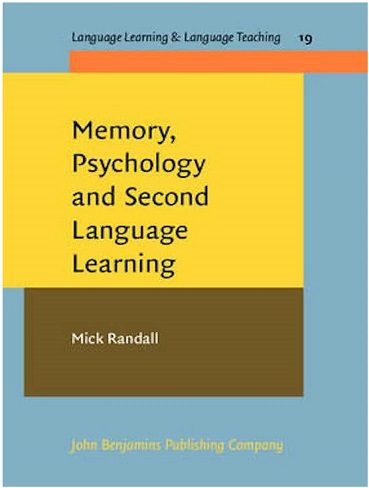
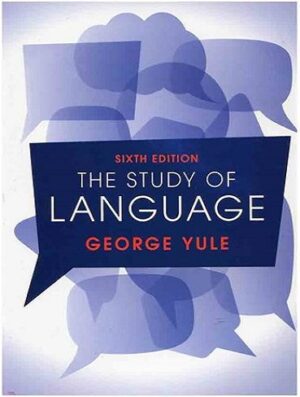
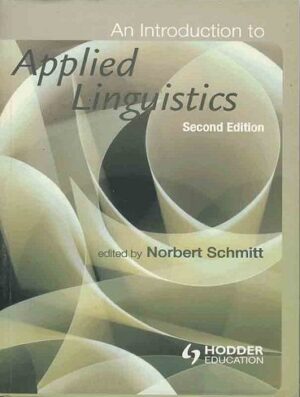
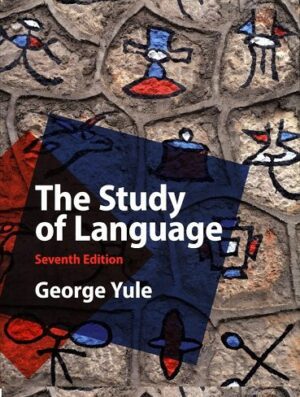
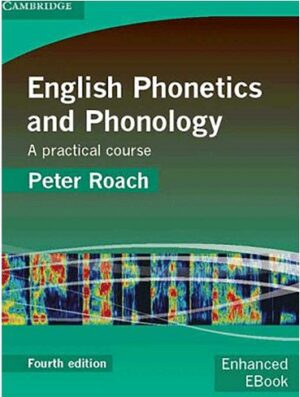
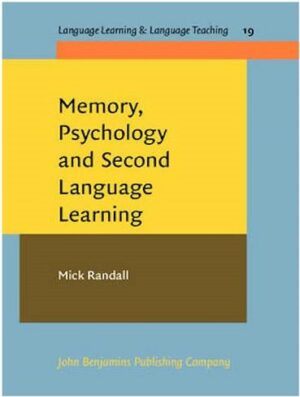
Memory Psychology and Second Language Learning
This book explores the contributions that cognitive linguistics and psychology, including neuropsychology, have made to the understanding of the way that second languages are processed and learnt. It examines areas of phonology, word recognition and semantics, examining ‘bottom-up’ decoding processes as compared with ‘top-down’ processes as they affect memory. It also discusses second language learning from the acquisition/learning and nativist/connectionist perspectives. These ideas are then related to the methods that are used to teach second languages, primarily English, in formal classroom situations
This examination involves both ‘mainstream’ communicative approaches, and more traditional methods widely used to teach EFL throughout the world. The book is intended to act both as a textbook for students who are studying second language teaching and as an exploration of issues for the interested teacher who would like to further extend their understanding of the cognitive processes underlying their teaching.Mick Randall is currently Senior Lecturer in TESOL and Head of the Institute of Education at the British University in Dubai. He has taught courses in second language learning and teaching, applied linguistics and psychology in a number of different contexts. He has a special interest in the cognitive processing of language and in the psycholinguistics of word recognition, spelling and reading